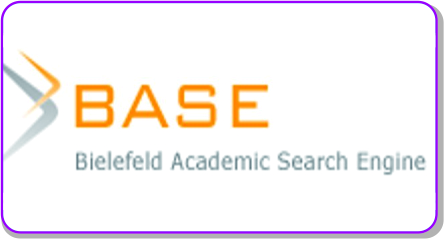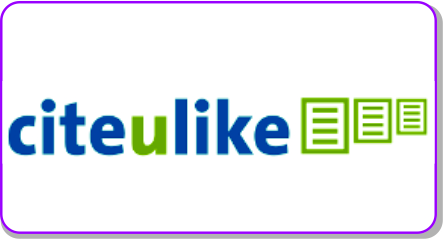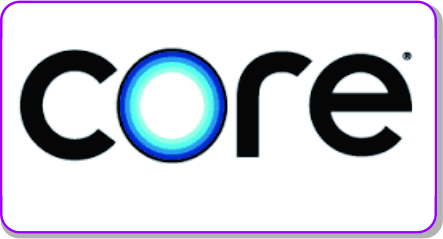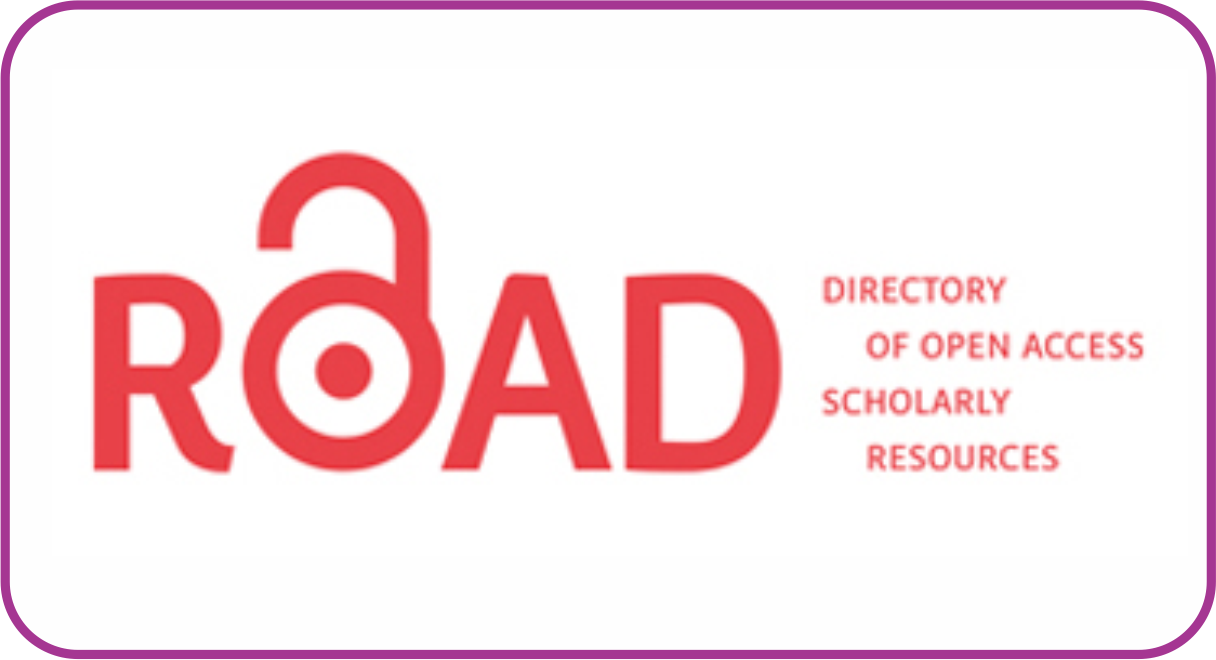Exploring the Influence of Organizational Culture and Interpersonal Communication on Teacher Performance Through Self-Competency Mediation
DOI:
https://doi.org/10.30983/educative.v9i2.8674Keywords:
organization culture, communication interpersonal, teacher performanceAbstract
This research explores the urgency and influence of organizational culture and interpersonal communication on teacher performance through self-competence. Organizational culture issues often stem from poor communication, a lack of clear vision, resistance to change, and weak collaboration between teams. Ideally, organizational culture should encourage open communication, be rooted in strong values, remain flexible toward innovation, and strengthen teamwork to achieve common goals. The survey method was used to collect data based on probability sampling from 26 teachers from Public Junior High School in Badegan District, Ponorogo, East Java. Data collection was carried out using a questionnaire consisting of a Likert scale with 4 alternative answers. PLS-SEM analysis is used to analyze data and test construction infrastructure. The results of the analysis show that Organizational Culture (ẞ=0.086; p=0.562) and self-competence on teacher performance (ẞ=0.268, p=0.099) have an insignificant effect. In addition, self-competence was proven not to mediate the influence of organizational culture (ẞ=0.145: p=0.111) on teacher performance. The implications of this research highlight the important role of organizational culture and interpersonal communication in improving teacher performance.
References
Achwan, Rochman, Meuthia Ganie-Rochman, Andi Rahman Alamsyah, and Lidya Triana. “University Reform and the Development of Social Sciences in Indonesia.” International Journal of Educational Development 78, no. 2 (October 1, 2020): 1–10. https://doi.org/10.1016/j.ijedudev.2020.102269.
Afdal, Afdal, Nur Hidayah, Nandang Budiman, Yessa Maulida, Indah Sukmawati, Rezki Hariko, Miftahul Fikri, Nurfarhanah Nurfarhanah, and Netrawati Netrawati. “Expectations and Reality Regarding Teacher Personality: Perspectives of Indonesian Students Using Importance-Performance Analysis.” International Journal of Learning, Teaching and Educational Research 22, no. 5 (June 5, 2023): 1–22. https://doi.org/10.26803/ijlter.22.5.32.
Ahad, Rosnee, Mohamad Zaid Mustafa, Suhaimi Mohamad, Nur Hanim Saadah Abdullah, and Mohd Norazmi Nordin. “Work Attitude, Organizational Commitment and Emotional Intelligence of Malaysian Vocational College Teachers.” Journal of Technical Education and Training 13, no. 1 (January 15, 2021): 15–21. https://publisher.uthm.edu.my/ojs/index.php/JTET/article/view/7898.
Al-Fraihat, Dimah, Mike Joy, Ra’ed Masa’deh, and Jane Sinclair. “Evaluating E-Learning Systems Success: An Empirical Study.” Computers in Human Behavior 102, no. 2 (January 2020): 67–86. https://doi.org/10.1016/j.chb.2019.08.004.
Alshurideh, Muhammad, Barween Al Kurdi, Said A. Salloum, Ibrahim Arpaci, and Mostafa Al-Emran. “Predicting the Actual Use of M-Learning Systems: A Comparative Approach Using PLS-SEM and Machine Learning Algorithms.” Interactive Learning Environments 31, no. 3 (April 3, 2023): 1214–28. https://doi.org/10.1080/10494820.2020.1826982.
Antera, Sofia. “Professional Competence of Vocational Teachers: A Conceptual Review.” Vocations and Learning 14, no. 3 (October 1, 2021): 459–79. https://doi.org/10.1007/s12186-021-09271-7.
Apriliani, Fatwa Dewi, Widihastuti, Rihab Wit Daryono, Daniel Jesayanto Jaya, and Adilla Desy Rizbudiani. “The Influence of Fashion Knowledge, Fashion Selection Factor, and Dress Etiquette on Dress Look.” Jurnal Pendidikan Dan Pengajaran 56, no. 1 (April 19, 2023): 194–207. https://doi.org/10.23887/jpp.v56i1.53677.
Arifin, Imron, Juharyanto, Mustiningsih, and Ahmad Taufiq. “Islamic Crash Course as a Leadership Strategy of School Principals in Strengthening School Organizational Culture.” Sage Open 8, no. 3 (July 1, 2018): 2158244018799849. https://doi.org/10.1177/2158244018799849.
Ashraf, Mohammad Ali, and Hasnan Ahmed. “Approaches to Quality Education in Tertiary Sector: An Empirical Study Using PLS-SEM.” Education Research International 2022, no. 5 (February 22, 2022): 54–69. https://doi.org/10.1155/2022/5491496.
Bartosiewicz, Anna, Edyta Łuszczki, Lech Zaręba, Maciej Kuchciak, Gabriel Bobula, Katarzyna Dereń, and Paweł Król. “Assessment of Job Satisfaction, Self-Efficacy, and the Level of Professional Burnout of Primary and Secondary School Teachers in Poland during the COVID-19 Pandemic.” PeerJ 10, no. 2 (June 10, 2022): 1–13. https://doi.org/10.7717/peerj.13349.
Bashir, Barooj, and Abdul Gani. “Testing the Effects of Job Satisfaction on Organizational Commitment.” Journal of Management Development 39, no. 4 (January 1, 2020): 525–42. https://doi.org/10.1108/JMD-07-2018-0210.
Baumgartner, Matthias. “Professional Competence(s) of Physical Education Teachers: Terms, Traditions, Modelling and Perspectives.” German Journal of Exercise and Sport Research 52, no. 4 (December 1, 2022): 550–57. https://doi.org/10.1007/s12662-022-00840-z.
Bektiarso, Singgih, Iwan Wicaksono, and Aris Singgih Budiarso. “The Effect of Job Satisfaction and Work Motivation on the Performance of Junior High School Teachers in Jember Regency.” AIP Conference Proceedings 2679, no. 1 (January 4, 2023): 1–17. https://doi.org/10.1063/5.0111374.
Cahapay, Michael B., and Nathaniel F. Bangoc Ii. “Technostress, Work Performance, Job Satisfaction, and Career Commitment of Teachers amid COVID-19 Crisis in the Philippines.” IJERI: International Journal of Educational Research and Innovation 9, no. 16 (December 1, 2021): 260–75. https://doi.org/10.46661/ijeri.6145.
Cayupe, Juan C., David Hugo Bernedo-Moreira, Wilter C. Morales-García, Fátima López Alcaraz, Karla Berenice Carrazco Peña, and Jacksaint Saintila. “Self-Efficacy, Organizational Commitment, Workload as Predictors of Life Satisfaction in Elementary School Teachers: The Mediating Role of Job Satisfaction.” Frontiers in Psychology 14, no. 2 (May 31, 2023): 1–9. https://doi.org/10.3389/fpsyg.2023.1066321.
Chahal, Jyoti, Vishal Dagar, Leila Dagher, Amar Rao, and Edmund Ntom Udemba. “The Crisis Effect in TPB as a Moderator for Post-Pandemic Entrepreneurial Intentions among Higher Education Students: PLS-SEM and ANN Approach.” The International Journal of Management Education 21, no. 3 (November 1, 2023): 1–43. https://doi.org/10.1016/j.ijme.2023.100878.
Cheng, Hao. “Composite Quantile Estimation in PLS-SEM for Environment Sustainable Development Evaluation.” Environment, Development and Sustainability 25, no. 7 (July 1, 2023): 6249–68. https://doi.org/10.1007/s10668-022-02300-y.
Daryono, Rihab Wit, Nur Hidayat, Muhammad Nurtanto, and Athok Fu’adi. “The Development of a Competency Framework for Architectural Engineering Graduates: Perspectives by the Construction Industry in Indonesia.” Journal of Technology and Science Education 14, no. 2 (February 22, 2024): 274–90. https://doi.org/10.3926/jotse.1986.
Demissie, Dereje, and Felekech G. Egziabher. “An Investigation of Organizational Culture of Higher Education: The Case of Hawassa University.” Education Research International 12, no. 2 (September 8, 2022): 1–12. https://doi.org/10.1155/2022/1222779.
Faidah, Ni’matul, Siti Rohmaturrosyidah Ratnawati, and Rihab Wit Daryono. “Self-Control Mediation: The Influence of Islamic Learning and Parent’s Support on Student’s Religious Character.” EDURELIGIA: Jurnal Pendidikan Agama Islam 8, no. 1 (June 30, 2024): 42–58. https://doi.org/10.33650/edureligia.v8i1.8472.
Fauzan, Azhar, Mochamad Bruri Triyono, Rendra Ananta Prima Hardiyanta, Rihab Wit Daryono, and Shilmi Arifah. “The Effect of Internship and Work Motivation on Students’ Work Readiness in Vocational Education: PLS-SEM Approach.” Journal of Innovation in Educational and Cultural Research 4, no. 1 (January 10, 2023): 26–34. https://doi.org/10.46843/jiecr.v4i1.413.
Fawaid, Moh, Mochamad Bruri Triyono, Herminarto Sofyan, Muhammad Nurtanto, Farid Mutohhari, Dwi Jatmoko, Nuur Wachid Abdul Majid, and Rabiman Rabiman. “Entrepreneurial Intentions of Vocational Education Students in Indonesia: PLS-SEM Approach.” Journal of Technical Education and Training 14, no. 2 (September 29, 2022): 91–105. https://publisher.uthm.edu.my/ojs/index.php/JTET/article/view/11375.
Hair, Joseph, and Abdullah Alamer. “Partial Least Squares Structural Equation Modeling (PLS-SEM) in Second Language and Education Research: Guidelines Using an Applied Example.” Research Methods in Applied Linguistics 1, no. 3 (December 1, 2022): 1–21. https://doi.org/10.1016/j.rmal.2022.100027.
Hair, Joseph F., Claudia Binz Astrachan, Ovidiu I. Moisescu, Lăcrămioara Radomir, Marko Sarstedt, Santha Vaithilingam, and Christian M. Ringle. “Executing and Interpreting Applications of PLS-SEM: Updates for Family Business Researchers.” Journal of Family Business Strategy 12, no. 3 (September 1, 2021): 1–14. https://doi.org/10.1016/j.jfbs.2020.100392.
Hariyanto, Valentinus Lilik, Rihab Wit Daryono, Nur Hidayat, Sutarto Hadi Prayitno, and Muhammad Nurtanto. “A Framework for Measuring the Level of Achievement of Vocational Students Competency of Architecture Education.” Journal of Technology and Science Education 12, no. 1 (March 21, 2022): 157–71. https://doi.org/10.3926/jotse.1188.
Harwisaputra, Andreas Fredyansa, Athok Fu’adi, and Rihab Wit Daryono. “The Influence of Academic Supervision and Professional Learning Community (PLC) on Teacher Professional Competency: Does the Mediation of Self-Confidence Matter?” Didaktika: Jurnal Kependidikan 13, no. 3 (July 24, 2024): 3087–3104. https://doi.org/10.58230/27454312.629.
Huang, Shenghua, Hongbiao Yin, and Lijie Lv. “Job Characteristics and Teacher Well-Being: The Mediation of Teacher Self-Monitoring and Teacher Self-Efficacy.” Educational Psychology 39, no. 3 (March 16, 2019): 313–31. https://doi.org/10.1080/01443410.2018.1543855.
Ihsan, Mahlil Nurul, Nurwadjah Ahmad, Aan Hasanah, and Andewi Suhartini. “Islamic Boarding School Culture Climate in Forming The Religious Attitude of Islamic Students in Modern and Agrobusiness Islamic Boarding Schools.” Nazhruna: Jurnal Pendidikan Islam 4, no. 2 (July 25, 2021): 362–82. https://doi.org/10.31538/nzh.v4i2.1492.
Jiang, Yujun, Ping Wang, Qiang Li, and Yingji Li. “Students’ Intention toward Self-Regulated Learning under Blended Learning Setting: PLS-SEM Approach.” Sustainability 14, no. 16 (January 2022): 1–19. https://doi.org/10.3390/su141610140.
Lindner, Katharina-Theresa, Hannu Savolainen, and Susanne Schwab. “Development of Teachers’ Emotional Adjustment Performance Regarding Their Perception of Emotional Experience and Job Satisfaction During Regular School Operations, the First and the Second School Lockdown in Austria.” Frontiers in Psychology 12, no. 2 (November 15, 2021): 1–16. https://doi.org/10.3389/fpsyg.2021.702606.
Marín-López, Inmaculada, Izabela Zych, Claire P. Monks, and Rosario Ortega-Ruiz. “Empathy, Morality and Social and Emotional Competencies in Interpersonal Interactions Online.” In Thriving in Digital Workspaces: Emerging Issues for Research and Practice, edited by Melinde Coetzee, 217–33. Cham: Springer International Publishing, 2019. https://doi.org/10.1007/978-3-030-24463-7_11.
Martínez, Navarro Olga, Jorge Igual García, and Vicente Traver Salcedo. “Transferring Healthcare Professional’s Digital Competencies to the Workplace and Patients: A Pilot Study.” International Journal of Environmental Research and Public Health 19, no. 20 (January 2022): 1–13. https://doi.org/10.3390/ijerph192013187.
Mukaromah, Nurul Hidayatul, Athok Fuadi, and Rihab Wit Daryono. “Assessing the Impact of Principal Leadership and Teacher Performance on Educational Quality: The Role of TQM as a Mediator.” Tarbawi: Jurnal Keilmuan Manajemen Pendidikan 10, no. 01 (May 31, 2024): 145–60. https://doi.org/10.32678/tarbawi.v10i01.9991.
Nguyen, Cuong Quoc, Anh Minh Tu Nguyen, and Long Ba Le. “Using Partial Least Squares Structural Equation Modeling (PLS-SEM) to Assess the Effects of Entrepreneurial Education on Engineering Students’s Entrepreneurial Intention.” Cogent Education 9, no. 1 (December 31, 2022): 1–15. https://doi.org/10.1080/2331186X.2022.2122330.
Nurdian, Andika Ikhfa, Panggih Wahyu Nugroho, Noorazman Bin Abd Samad, and Rihab Wit Daryono. “Exploring The Influence of Project for Strengthening the Profile of Pancasila Students and School Culture to Character Building: The Mediating Role of Student Self-Awareness.” G-Couns: Jurnal Bimbingan Dan Konseling 8, no. 3 (June 20, 2024): 1716–32. https://doi.org/10.31316/gcouns.v8i3.6075.
Pratiwi, Nanda, Siti Zazak Soraya, and Rihab Wit Daryono. “Teacher Competence and Religious Character on Learning Achievement: The Mediating Role of Islamic Extracurriculars.” FITRAH: Jurnal Kajian Ilmu-Ilmu Keislaman 10, no. 1 (June 30, 2024): 79–98. https://doi.org/10.24952/fitrah.v10i1.10906.
Purnomo, Ahmad Kosim, Moh Munir, and Rihab Wit Daryono. “The Role of Self-Awareness in Mediating the Influence of Islamic Boarding School Policies and Regulations on the Competency Development of Santri: PLS-SEM Approach.” AL-ISHLAH: Jurnal Pendidikan 16, no. 3 (July 31, 2024): 3437–52. https://doi.org/10.35445/alishlah.v16i3.5179.
Putra, Kadek Arief Jayadie, Mochamad Bruri Triyono, and Rihab Wit Daryono. “The Influence of Entrepreneurship Competency and Leadership Challenge to Principals’ Leadership Solutions.” Jurnal Pendidikan Dan Pengajaran 55, no. 2 (July 8, 2022): 385–97. https://doi.org/10.23887/jpp.v55i2.43711.
Radkevych, V., S. Kravets, T. Herliand, O. Radkevych, and A. Kozak. “Modern Technologies in the Development of Professional Competence in Teachers from Professional (Vocational) Education Schools.” Journal of Physics: Conference Series 1840, no. 1 (March 2021): 1–12. https://doi.org/10.1088/1742-6596/1840/1/012041.
Setyani, Mamik, Fata Asyrofi Yahya, Rihab Wit Daryono, and Titis Thoriquttyas. “Exploring the Influence of Self-Competence and Islamic Boarding School Regulations on Student Character: The Mediating Role of Islamic Boarding School Culture.” Cendekia: Jurnal Kependidikan Dan Kemasyarakatan 22, no. 1 (July 3, 2024): 140–54. https://doi.org/10.21154/cendekia.v22i1.9555.
Šimunović, Mara, Barbara Balaž, Maja Parmač Kovačić, and Irena Burić. “Understanding Factors Related to Teacher Job Performance during the COVID-19 Pandemic: The Mediating Role of Emotional Well-Being.” Teachers and Teaching 18, no. 3 (2023): 1–17. https://doi.org/10.1080/13540602.2023.2285882.
Suchyadi, Yudhie, Nita Karmila, Nintin Nurlela, Santa, Mira Mirawati, Rukmini Handayani, Ratih Purnamasari, Rini Sri Indriani, Ade Wijaya, and Wawan Syahiril Anwar. “Increasing Personality Competence Of Primary School Teachers, Through Education Supervision Activities In Bogor City.” Journal of Community Engagement (JCE) 1, no. 1 (October 4, 2019): 20–23. https://doi.org/10.33751/jce.v1i01.1369.
Texeira-Quiros, Joaquín, and Maria do Rosário Justino. “Effects of Innovation, Total Quality Management, and Internationalization on Organizational Performance of Higher Education Institutions.” Frontiers in Psychology 13, no. 4 (April 14, 2022): 1–15. https://doi.org/10.3389/fpsyg.2022.869638.
Trad, Moni, Mona Omar Alayoubi, Rasha Abdul Khalek, and Nada Khaddage-Soboh. “Assessing the Influence of Emotional Intelligence on Teachers’ Performance in Lebanese Private Education Institutions.” Higher Education, Skills and Work-Based Learning 12, no. 3 (January 1, 2021): 556–73. https://doi.org/10.1108/HESWBL-12-2020-0268.
Van Waeyenberg, Thomas, Riccardo Peccei, and Adelien Decramer. “Performance Management and Teacher Performance: The Role of Affective Organizational Commitment and Exhaustion.” The International Journal of Human Resource Management 33, no. 4 (February 21, 2022): 623–46. https://doi.org/10.1080/09585192.2020.1754881.
Widyastuti, Puspa, Samsul Hadi, Rihab Wit Daryono, and Noorazman Bin Abd Samad. “The Mediation Role of University Environment in the Relationship between Self-Efficacy and Family Environment on Entrepreneurial Education Interest: A PLS-SEM Approach.” Indonesian Journal on Learning and Advanced Education (IJOLAE) 5, no. 3 (September 30, 2023): 295–310. https://doi.org/10.23917/ijolae.v5i3.22015.
Downloads
Submitted
Accepted
Published
Issue
Section
License
Copyright (c) 2024 Rohmatul Fatah Ansori, Rihab Wit Daryono

This work is licensed under a Creative Commons Attribution-ShareAlike 4.0 International License.
Authors who publish with this journal agree to the following terms:
1. Authors retain copyright and grant the journal right of first publication with the work simultaneously licensed under a Creative Commons Attribution License that allows others to share the work with an acknowledgment of the work's authorship and initial publication in this journal.
2. Authors are able to enter into separate, additional contractual arrangements for the non-exclusive distribution of the journal's published version of the work (e.g., post it to an institutional repository or publish it in a book), with an acknowledgment of its initial publication in this journal.
3. Authors are permitted and encouraged to post their work online (e.g., in institutional repositories or on their website) prior to and during the submission process, as it can lead to productive exchanges, as well as earlier and greater citation of published work (See The Effect of Open Access).

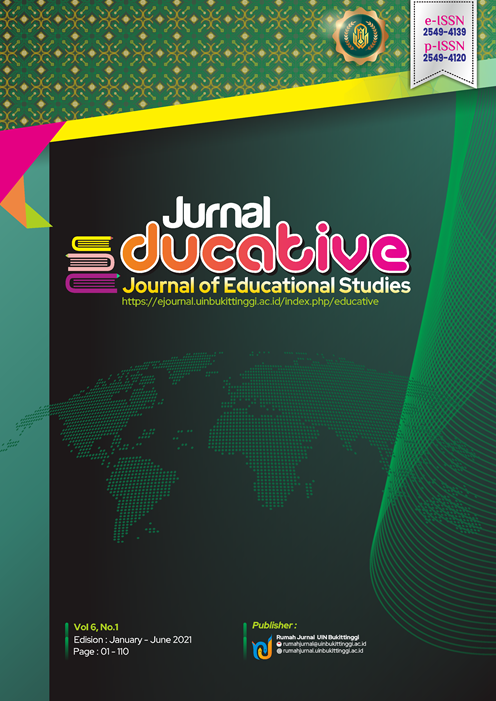



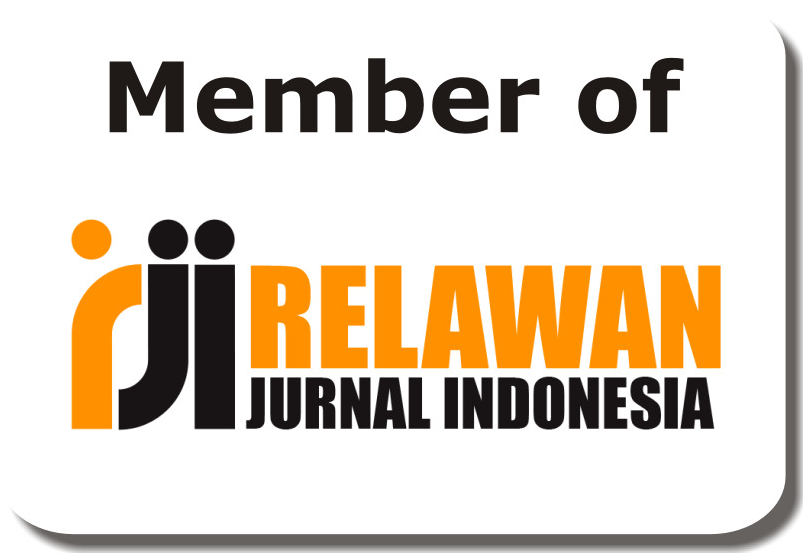


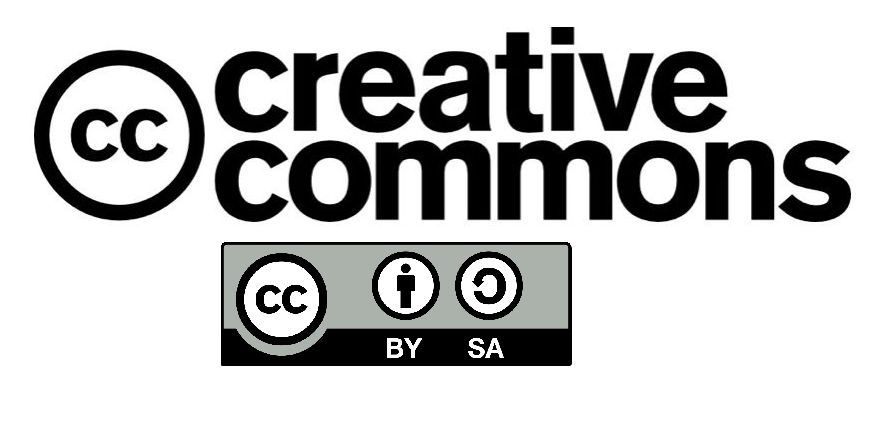


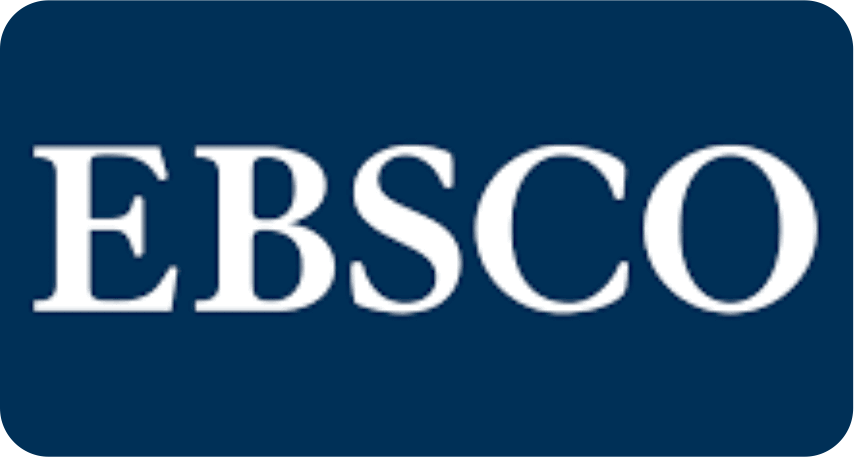






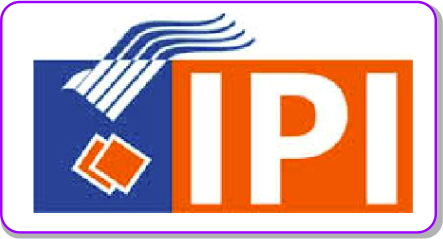 Â
 
